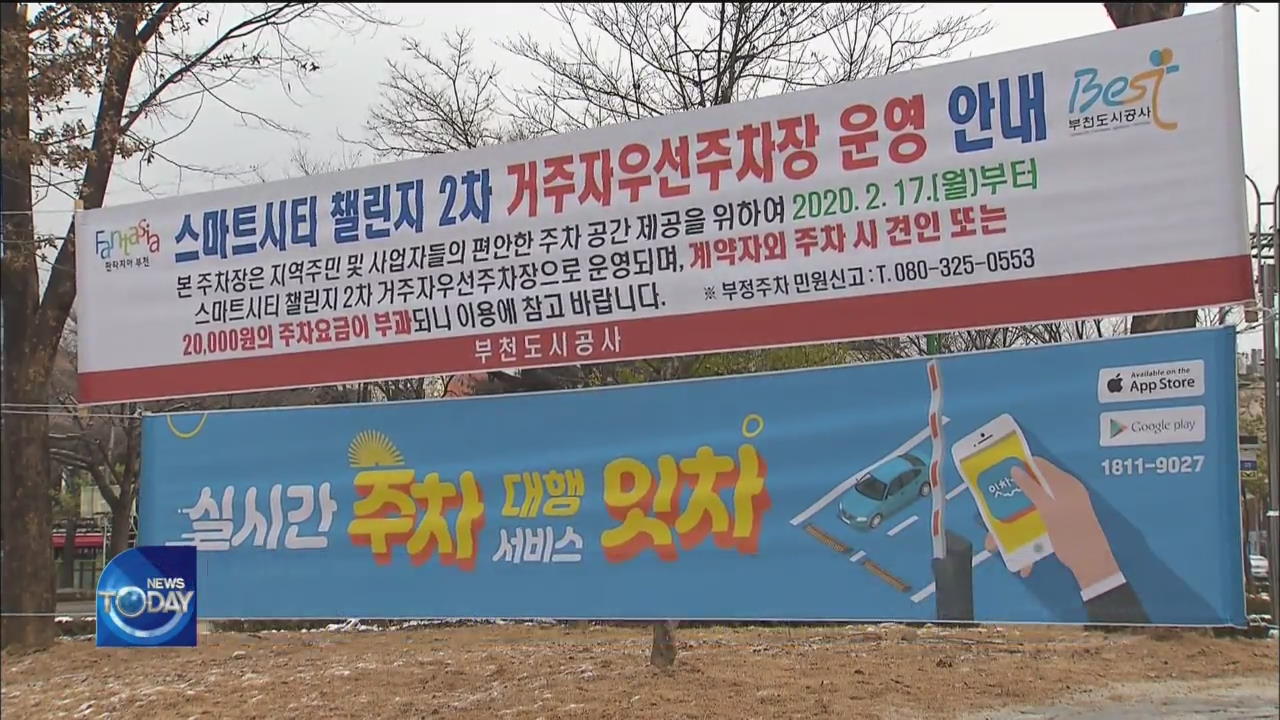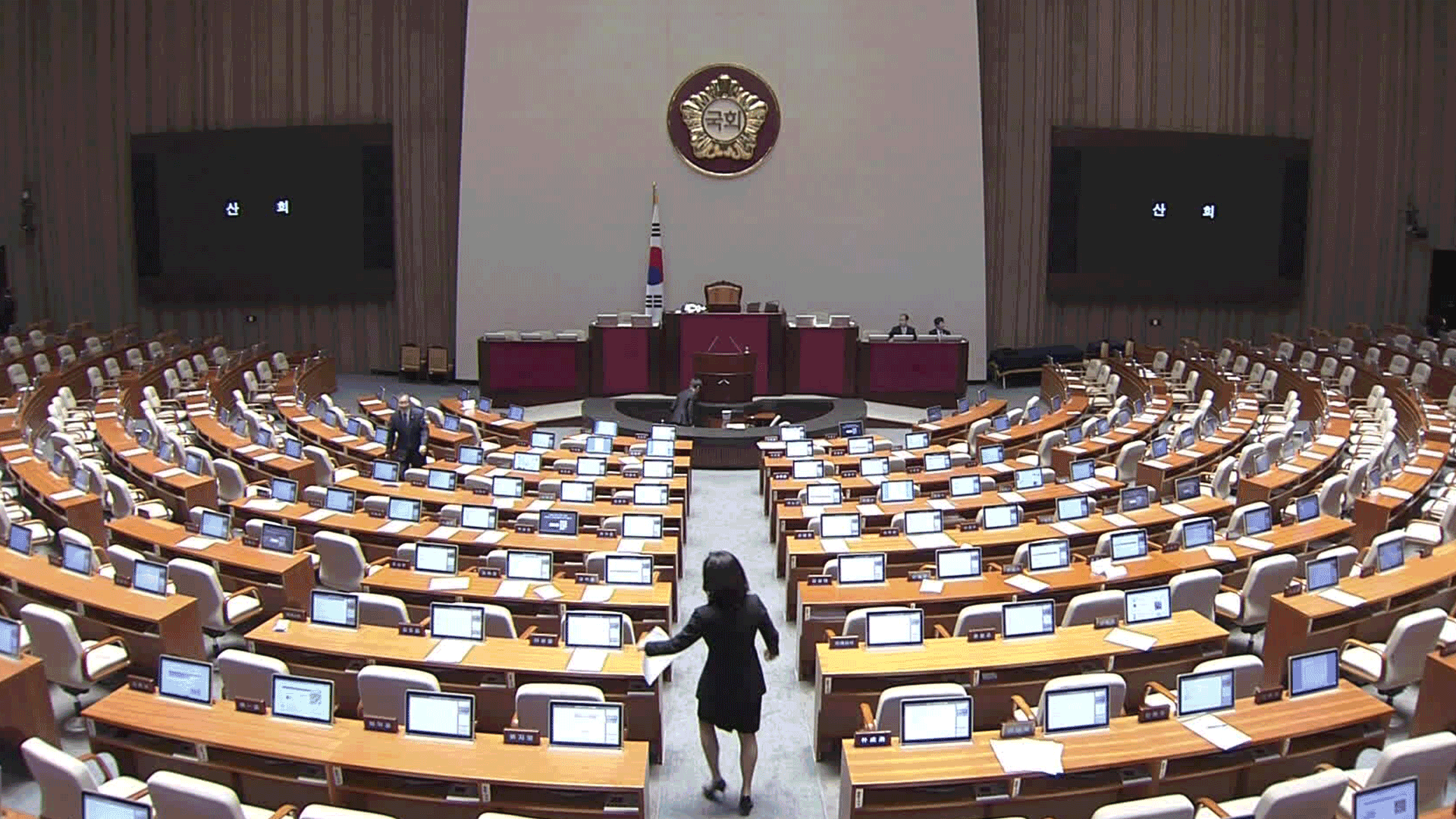COVID-19 AFFECTS BUDGET AIRLINES
입력 2020.02.18 (15:12)
수정 2020.02.18 (16:45)
읽어주기 기능은 크롬기반의
브라우저에서만 사용하실 수 있습니다.
[Anchor Lead]
The spread of COVID-19 is dealing a harsh blow to budget airlines which mainly service routes to China and Southeast Asia. Low cost carriers are shifting to emergency mode as they believe the current crisis is an urgent matter of survival.
[Pkg]
Air Busan which operates 32 international air routes has recently suspended all of its nine routes to China. Its Busan-Taipei route is also temporarily halted. More than half of the airline's international routes - 17 out of the 32 - have been or will be suspended in the coming days. Due to the coronavirus scare and strained Korea-Japan relations, Jeju Air, the largest low cost carrier in the country, has recorded a loss of over 30 billion won. Air Busan was also in the red for the first time in a decade. Most low budget airlines have reported operating losses from 10 to over 50 billion won. The firms have now entered emergency management mode.
[Soundbite] PARK JIN-WOO(AIR BUSAN) : "The situation is very serious. We are taking unpaid leave from some employees while executive level staff are giving back 2-30% of their wages."
90% of routes serviced by budget carriers fly to China, Japan and Southeast Asia.
[Soundbite] JEON JONG-YUN(BUSAN CHAMBER OF COMMERCE & INDUSTRY) : "Restructuring and M&As are considered necessary to secure competitiveness of low cost carriers."
Airlines which purchased additional aircraft last year to expand their business are especially bearing the brunt of the current challenges.
The spread of COVID-19 is dealing a harsh blow to budget airlines which mainly service routes to China and Southeast Asia. Low cost carriers are shifting to emergency mode as they believe the current crisis is an urgent matter of survival.
[Pkg]
Air Busan which operates 32 international air routes has recently suspended all of its nine routes to China. Its Busan-Taipei route is also temporarily halted. More than half of the airline's international routes - 17 out of the 32 - have been or will be suspended in the coming days. Due to the coronavirus scare and strained Korea-Japan relations, Jeju Air, the largest low cost carrier in the country, has recorded a loss of over 30 billion won. Air Busan was also in the red for the first time in a decade. Most low budget airlines have reported operating losses from 10 to over 50 billion won. The firms have now entered emergency management mode.
[Soundbite] PARK JIN-WOO(AIR BUSAN) : "The situation is very serious. We are taking unpaid leave from some employees while executive level staff are giving back 2-30% of their wages."
90% of routes serviced by budget carriers fly to China, Japan and Southeast Asia.
[Soundbite] JEON JONG-YUN(BUSAN CHAMBER OF COMMERCE & INDUSTRY) : "Restructuring and M&As are considered necessary to secure competitiveness of low cost carriers."
Airlines which purchased additional aircraft last year to expand their business are especially bearing the brunt of the current challenges.
■ 제보하기
▷ 카카오톡 : 'KBS제보' 검색, 채널 추가
▷ 전화 : 02-781-1234, 4444
▷ 이메일 : kbs1234@kbs.co.kr
▷ 유튜브, 네이버, 카카오에서도 KBS뉴스를 구독해주세요!
- COVID-19 AFFECTS BUDGET AIRLINES
-
- 입력 2020-02-18 15:14:52
- 수정2020-02-18 16:45:17

[Anchor Lead]
The spread of COVID-19 is dealing a harsh blow to budget airlines which mainly service routes to China and Southeast Asia. Low cost carriers are shifting to emergency mode as they believe the current crisis is an urgent matter of survival.
[Pkg]
Air Busan which operates 32 international air routes has recently suspended all of its nine routes to China. Its Busan-Taipei route is also temporarily halted. More than half of the airline's international routes - 17 out of the 32 - have been or will be suspended in the coming days. Due to the coronavirus scare and strained Korea-Japan relations, Jeju Air, the largest low cost carrier in the country, has recorded a loss of over 30 billion won. Air Busan was also in the red for the first time in a decade. Most low budget airlines have reported operating losses from 10 to over 50 billion won. The firms have now entered emergency management mode.
[Soundbite] PARK JIN-WOO(AIR BUSAN) : "The situation is very serious. We are taking unpaid leave from some employees while executive level staff are giving back 2-30% of their wages."
90% of routes serviced by budget carriers fly to China, Japan and Southeast Asia.
[Soundbite] JEON JONG-YUN(BUSAN CHAMBER OF COMMERCE & INDUSTRY) : "Restructuring and M&As are considered necessary to secure competitiveness of low cost carriers."
Airlines which purchased additional aircraft last year to expand their business are especially bearing the brunt of the current challenges.
The spread of COVID-19 is dealing a harsh blow to budget airlines which mainly service routes to China and Southeast Asia. Low cost carriers are shifting to emergency mode as they believe the current crisis is an urgent matter of survival.
[Pkg]
Air Busan which operates 32 international air routes has recently suspended all of its nine routes to China. Its Busan-Taipei route is also temporarily halted. More than half of the airline's international routes - 17 out of the 32 - have been or will be suspended in the coming days. Due to the coronavirus scare and strained Korea-Japan relations, Jeju Air, the largest low cost carrier in the country, has recorded a loss of over 30 billion won. Air Busan was also in the red for the first time in a decade. Most low budget airlines have reported operating losses from 10 to over 50 billion won. The firms have now entered emergency management mode.
[Soundbite] PARK JIN-WOO(AIR BUSAN) : "The situation is very serious. We are taking unpaid leave from some employees while executive level staff are giving back 2-30% of their wages."
90% of routes serviced by budget carriers fly to China, Japan and Southeast Asia.
[Soundbite] JEON JONG-YUN(BUSAN CHAMBER OF COMMERCE & INDUSTRY) : "Restructuring and M&As are considered necessary to secure competitiveness of low cost carriers."
Airlines which purchased additional aircraft last year to expand their business are especially bearing the brunt of the current challenges.
이 기사가 좋으셨다면
-
좋아요
0
-
응원해요
0
-
후속 원해요
0

















이 기사에 대한 의견을 남겨주세요.